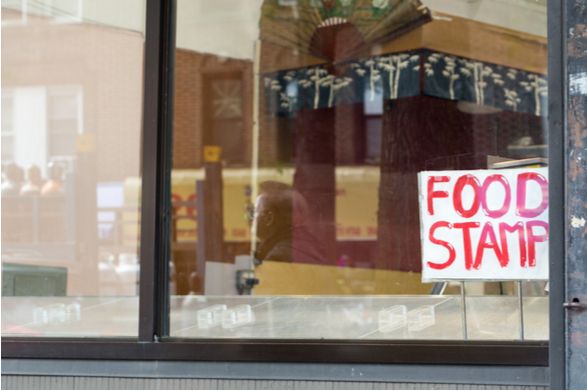A new rule from the Trump Administration would fix a loophole that allows Americans to automatically be enrolled in the Supplemental Nutrition Assistance Program (SNAP) without vetting their income and assets.
This ensures that the system saves much-needed assistance to the truly needy (not millionaires and lottery winners) and will save taxpayers over $2 billion.
Over 35 million people receive food stamps today – down from a high of 47 million under the Obama Administration. You might think they all qualify for food assistance because they are poor (earning no more than 130 percent of the poverty line or about $33,000 for a family of four).
In reality, we have stories of millionaires and lottery winners collecting food stamp benefits. In Michigan, state officials found that a whopping 14% of lottery winners were on welfare, including the winner of a $4 million jackpot. In Maine, the state’s welfare agency discovered nearly 4,000 welfare recipients had won $22 million through the state lottery. Yet, they remained on food stamps, cash assistance, and other welfare programs.
This is a problem that undermines the integrity of the SNAP and diverts limited funds from truly poor Americans.
How is this happening?
Although SNAP is a federal program run by the Department of Agriculture, states administer the program. Some states use “broad-based categorical eligibility,” which allows families who receive other assistance such as cash payments, to automatically be enrolled onto food stamps even if their incomes are above 130 percent of the poverty line.
Food stamps recipients don’t have to demonstrate need which opens the door to abuse of the SNAP program. Some states make eligibility so easy that receiving a brochure on SNAP can be enough to enroll you into the program.
The Trump Administration rightly has said, enough is enough.
It proposes closing this loophole and forcing states to do their jobs by checking that beneficiaries actually qualify for aid. As a result, an estimated 8 percent of SNAP recipients (or about 3.1 million people) will no longer be eligible for food stamps.
Agriculture Secretary Sonny Perdue said in announcing the proposed rule:
"This proposal will not only save money, but more importantly it preserves the integrity of the program while ensuring nutrition assistance programs serve those most in need."
Some news outlets are painting this as kicking poor people off of food stamps. If, however, recipients do not have income or assets that meet $33,000 a year, they have nothing to worry about.
The public support is strong for means-testing beneficiaries. A 2018 survey by the Foundation for Government Accountability, 77 percent of Americans wants states to check the assets of SNAP beneficiaries.
With historically low unemployment rates, over seven million unfilled jobs nationally, and rising wages, this is a great time to ensure that Americans are able to work and moving toward independence.
This effort is another step towards that and to catch people gaming the system because of a lack of accountability.
Taxpayers have been ripped off for too long. Truly needy Americans also suffer when others with means selfishly divert the limited amount of public assistance we have.
The social safety net is there for those who need it, but we should no longer turn a blind eye to those who abuse our system.


